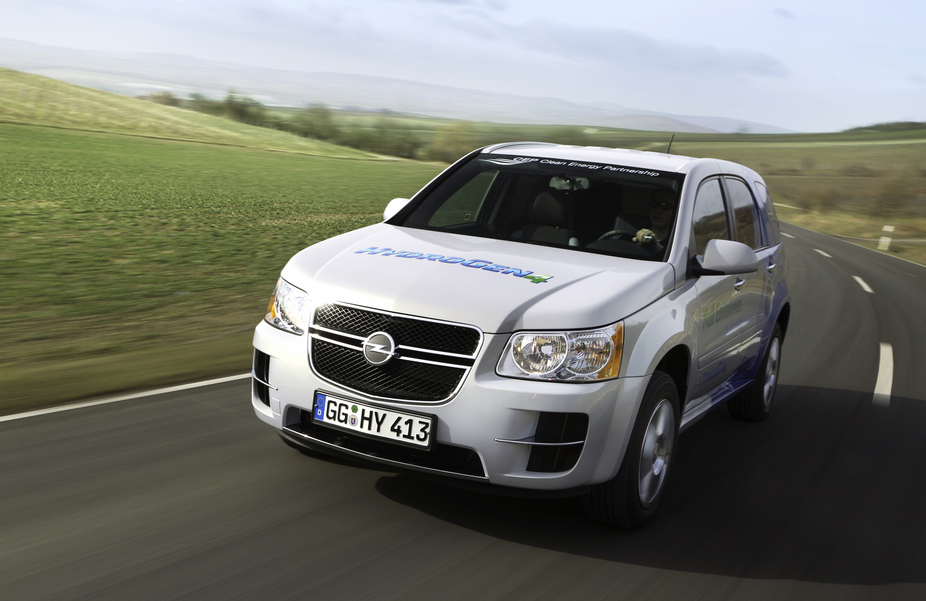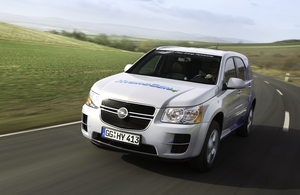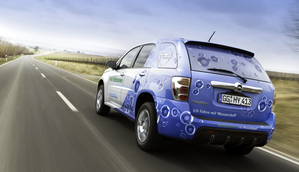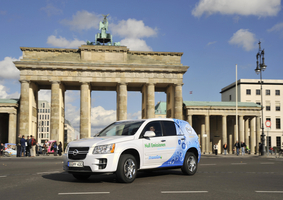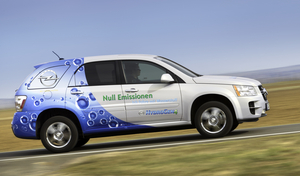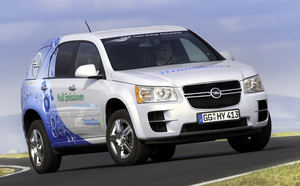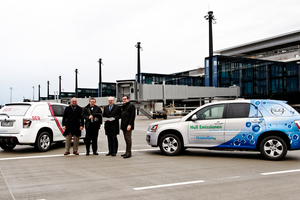|
Send this page to a friend! Fill in the form bellow | ||
news
Opel’s Fuel Cell development flies to Berlin’s new airport
Opel and the Berlin Brandenburg Airport (BER) have come together to work on the development of fuel cell vehicles. The German airport is receiving HydroGen4 vehicle which will be used “to give valuable further insights into the everyday suitability of this futuristic technology as part of the Clean Energy Partnership,” explains Opel Vice President of Government Relations, Volker Hoff.
The German brand saw BER as an ideal partner as it hosts the world’s first CO2 neutral gas station. Located on the area of the airport the Total gas station provides green hydrogen produced from wind energy by Enertrag. Together with Total and Enertrag, which were already partners, Opel closes with BER a circle of sustainable mobility.
The new Berlin Brandenburg Airport will become fully operational on June 3, 2012 and will replace the old airports of Tegel and Schönefeld has the intention to be the most modern airport in Europe with a leadership role in environmental and resources protection and to promote the use of alternative propulsion in the airport vehicle fleet.
According to the general manager for BBI Dr Manfred A. Körtgen,“our cooperation with Opel and the long term trial of the hydrogen vehicle HydroGen4 give us a great opportunity to test this modern and environmentally-friendly form of propulsion for its everyday suitability at the airport.”
The Opel market trial with fuel cell vehicles has been underway since 2008 and since then companies such as ADAC, Allianz, Axel Springer AG/Bild, Coca-Cola, Hilton, Linde, Pace, Schindler, Veolia and the NH Hotel Friedrichstrasse have been testing hydrogen as a futuristic and clean form of fuel in conjunction with the Opel HydroGen4.
The Opel HydroGen4 is the latest improvement from Opel and General Motors in terms of fuel cell propulsion investigation. The vehicle is powered by a synchronous electric motor which receives its energy from the electrical output of a fuel cell stack consisting of 440 series-connected cells. The Opel HydroGen4 delivers 73kW/100hp and accelerates from 0 to 100 km/h in twelve seconds while reaching a top speed of 160km/h.
Encyclopedia |
Contribute
more about Opel



latest news




